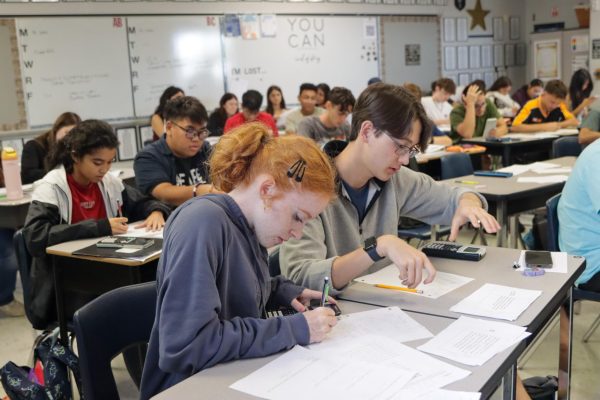“Little Fires Everywhere” ignites discussion
Hulu series sparks interest with its heavy topics of privilege and the connection of family
photo by Hulu
Opening up in the aftermath of a house fire, a family murmurs speculations about who started it in Hulu’s drama miniseries, “Little Fires Everywhere.” The camera then cuts to the face of a mortified mother, Elena Richardson (Reese Witherspoon), in shock of the wreckage. Viewers’ interest is piqued, but the rest of the show is not necessarily a mystery revolving around the fire. Instead it follows the seemingly perfect Richardson family, as well as the Warrens, a mother and daughter they take in as tenants—and as the show progresses it almost seems like any character could be the arsonist.
Despite taking place a few decades ago, Little Fires Everywhere does an amazing job of exposing privilege in all of its facets: race, gender, wealth, status and sexual orientation. Race and wealth are the most prominent issues – seen in how Elena takes pity on the Warrens and even offers to hire Mia, or how another privileged couple in the show fights to win custody against an illegal immigrant mother from China. However, the show also looks into the heteronormativity and racism of the town, as well as the trials of womanhood.
Initially, it seemed like certain characters were going to be two-dimensional—particularly Lexie (Jade Pettyjohn) and Trip (Jordan Elsass), two of Elena’s kids. From the first episode or two, there was not much more to them than being the cooler older siblings that got away with stuff because they were popular. However, the show takes the time to flesh out each character and give them legitimate problems in their relationships.
The main focus, the Richardson family, comes off as unlikeable almost immediately. Despite bad first impressions from Lexie and Trip, their siblings, Izzy (Megan Stott) and Moody (Gavin Lewis) are much more charming off the bat. Elena, however, is as prim and proper as one gets, but her overall lack of awareness feels like it could be redeemed.
This quickly shifts as the story progresses and it becomes a little more obvious just how awful of a person Elena can be. Mia Warren (Kerry Washington) is a colder character who is running from something; her daughter, Pearl (Lexi Underwood) just wants a regular teenage experience—so she is elated when they meet the Richardsons. Mia is less than enthused. This contrast between their opinions on the Richardsons is especially compelling, as Mia must decide whether Pearl’s happiness is worth losing something greater.
The tension between Mia and Elena is immediate, and this carries through the rest of the show. Both actresses are exemplary at fostering the distrust, the contempt and the facade of acquaintanceship between their characters, and every time they are in the same room, viewers are filled with dread.
Their parenting styles also foil each other. Mia is calloused and initially struggles to place her daughter’s needs over her own, but their bond is immensely powerful. Elena aspires for the perfect family, yet this falls short in her relationship with Izzy, which is consistently strained by Elena’s inability to accept her children being anything other than popular, pretty and normal.
Each character makes mistakes in their own way. Some are more likeable than others, but each one has a just as unlikeable side to them that only makes them feel more human. Elena is easily the most loathsome character in the show due to her constant tampering and disregard for others, but she never feels like a flat villain that hurts others simply because she is mean. She has her own set of morals that many viewers may perceive as wrong, but in Elena’s eyes are completely justifiable.
Character growth is another question, however. By the finale, most characters had certainly changed in some way, for better or worse, but it still felt like the poor choices of certain people had not been fully redeemed. And the ending is not sunshine and rainbows, either—it ends with the house burning down, after all. But this is perhaps what makes this show all the more human: things do not always go the way they should, justice is not always served and even when one’s actions seem like the most noble thing to do, someone will always get hurt.
Overall, “Little Fires Everywhere” conveys the shortcomings in every family, and how privilege can deteriorate relationships from a desensitization to hardships or empathy. It shows that everybody has their faults, that it is important to not repeat those faults, and it does so not just with the house that burns down, but with the smaller fires set between characters and through their actions along the way.
Your donation will support the student journalists of Hagerty High School. We are an ad-free publication, and your contribution helps us publish six issues of the BluePrint and cover our annual website hosting costs. Thank you so much!








